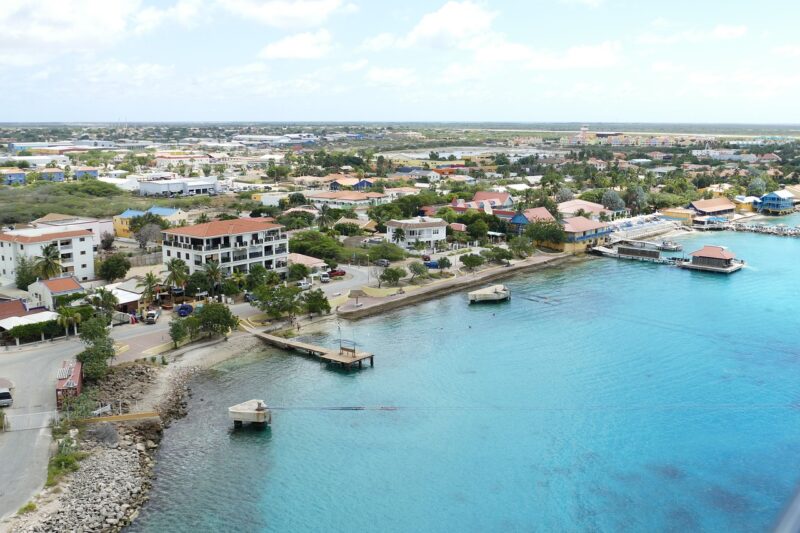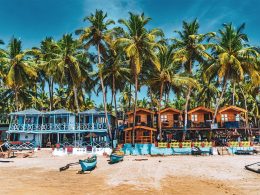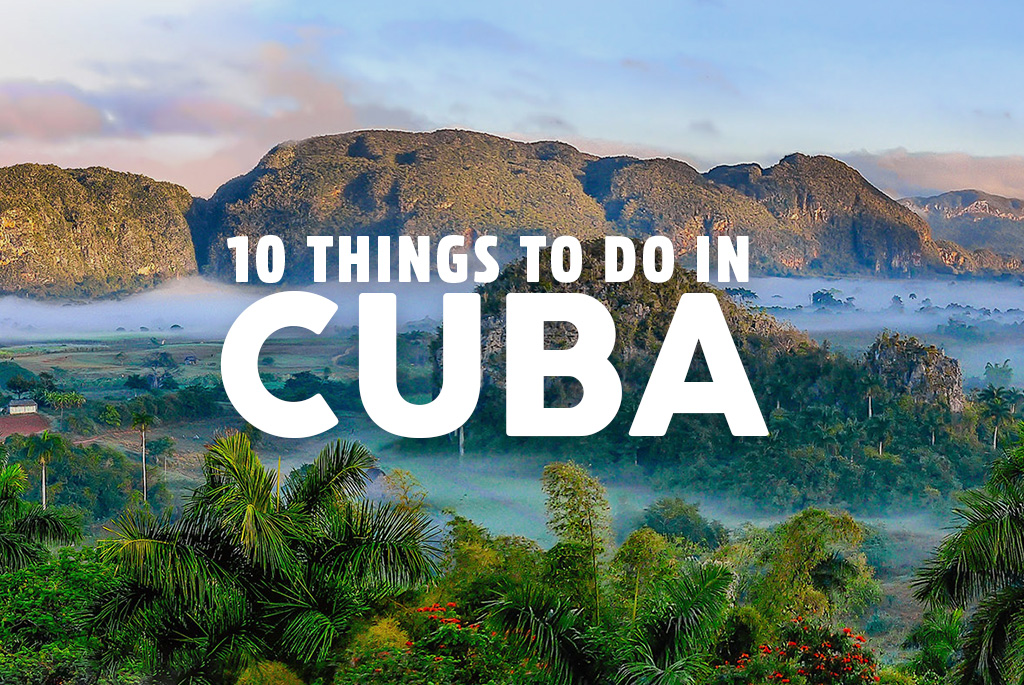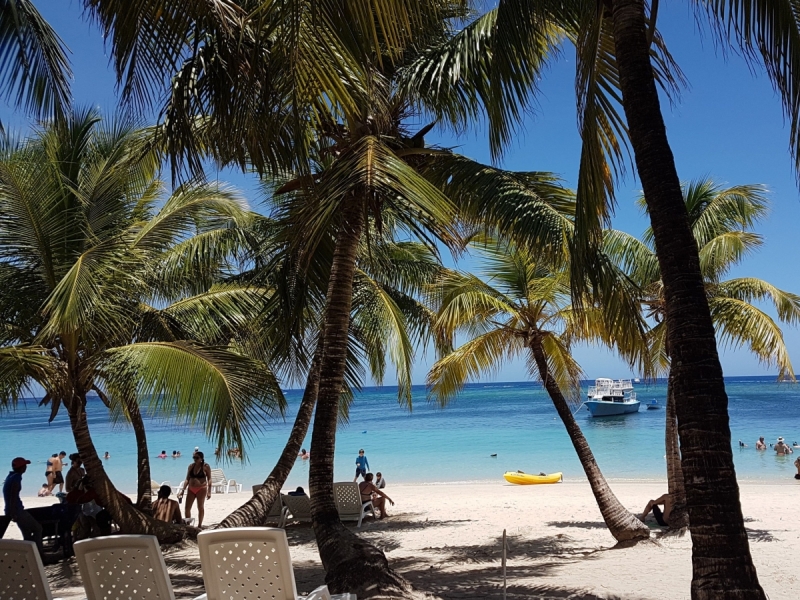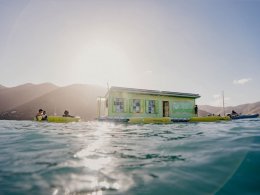Winding down a twisting road, one side lined with untamed cacti and centuries-old coral rock, the other revealing vistas of the deepest, most captivating blue sea ever encountered, a transition unfolded between two contrasting realms that remarkably fused in harmony. This enchantment defines Bonaire.
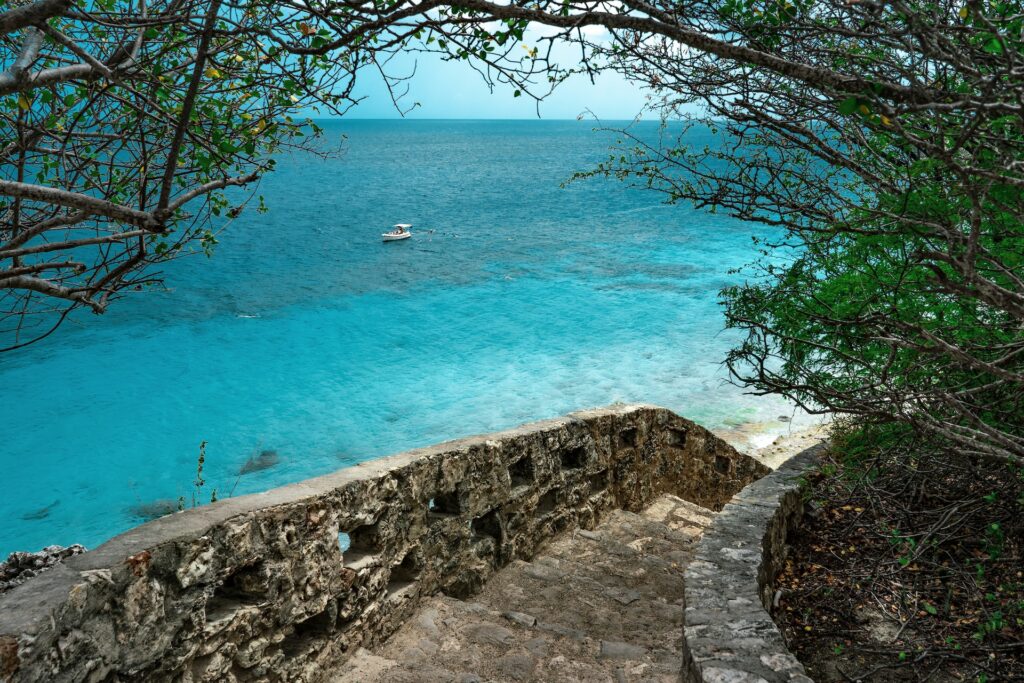
Nestled in the Dutch Caribbean, just above South America and beneath the hurricane belt, Bonaire stands as a testament to the beauty of duality. On this island, vibrant pink flamingos significantly surpass human residents, and beneath the surface of transparent waters, schools of rainbow-hued fish elegantly traverse their aquatic domain, while wild donkeys roam freely across the expansive, open landscapes.
Bonaire, often eclipsed by its more celebrated neighbors, Aruba and Curacao, holds the distinction of being the “B” in the “ABC Islands.” In 2019, this island paradise received a mere 157,800 visitors, of which approximately 25% hailed from the United States, as indicated by Statistics Netherlands.
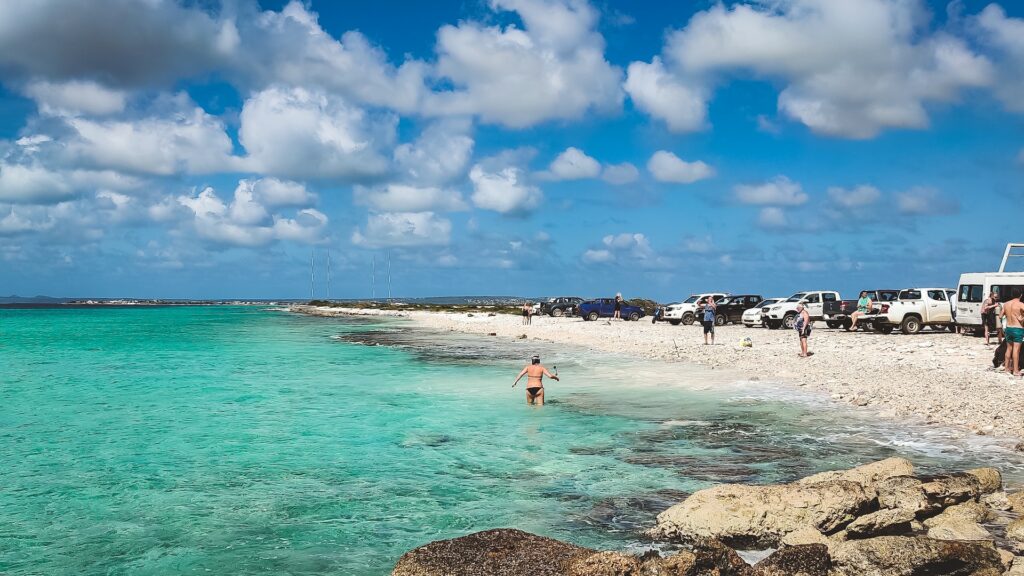
However, what Bonaire lacks in bustling tourism, it more than compensates for in its commitment to authenticity. Here, chain stores and traffic lights are conspicuously absent. In the words of Derchlien Vrolijk, the marketing coordinator for the Tourism Corporation Bonaire, “Visitors encounter the island in its unaltered form… it retains its unspoiled essence. We aim to preserve its natural authenticity.”
A “Blue Destination”
Bonaire proudly wears the badge of a “blue destination,” putting sustainability at the forefront. With a protected marine park and a plethora of nature-centric activities, including over 86 dive sites for shore diving and mangrove snorkeling, this island offers a pristine and eco-conscious experience.
As Vrolijk puts it, “Bonaire is a pristine island — you can make it as relaxing as possible or you can make it as hardcore and sporty, it depends on what you want to do.”
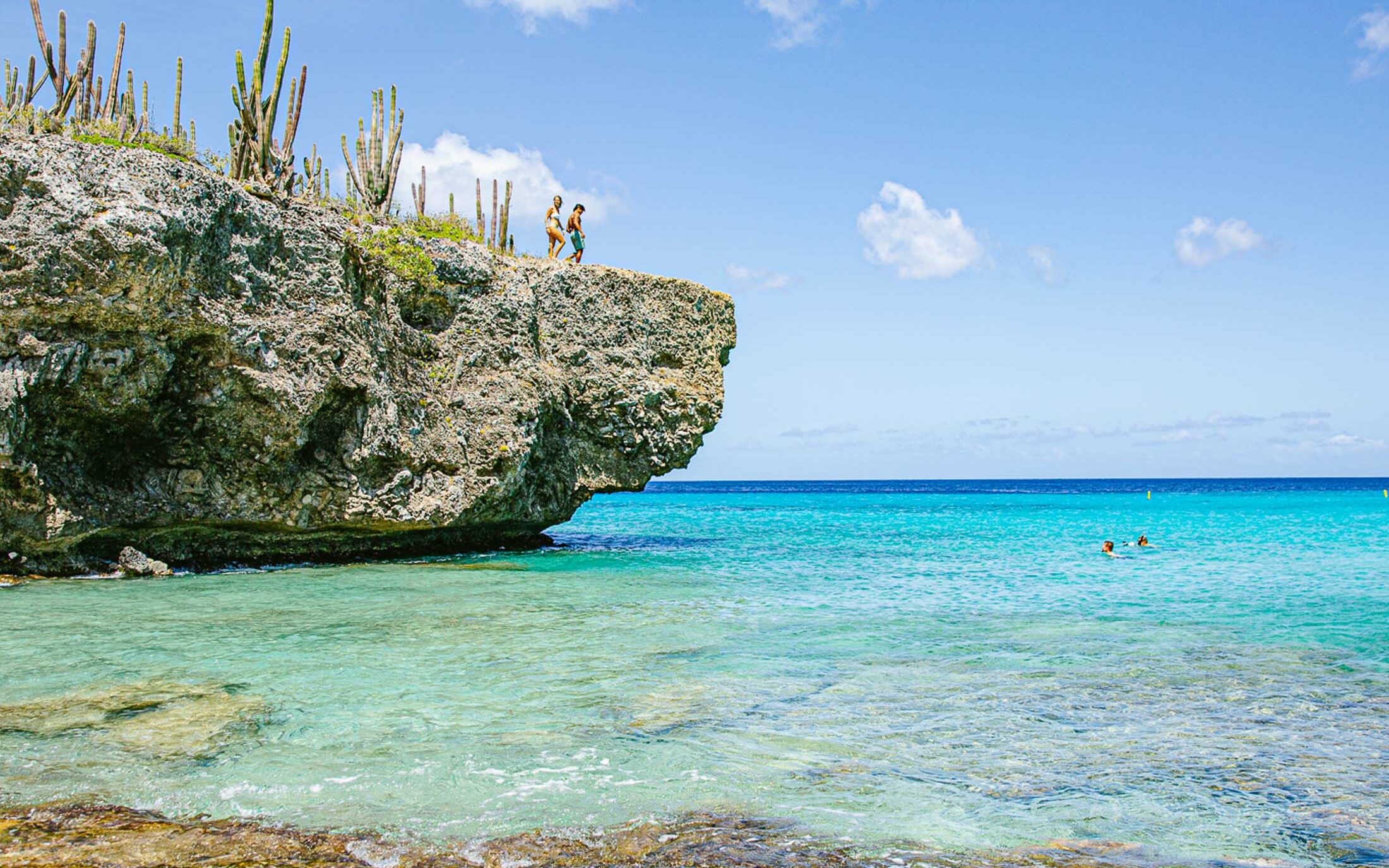
For travelers seeking a post-COVID-19 escape, Bonaire has removed all previous requirements, leaving only the need for a valid passport. Direct flights from Miami and Atlanta make reaching this Caribbean gem more accessible than ever.
Wildlife Abounds
One of the island’s unique features is its abundant wildlife, where it’s said that flamingos outnumber people. Elly Albers, the founder of Bonaire Wild Bird Rehab, can attest to this. Since 2018, she has been a “mama bird” to countless baby and fledgling flamingos that were found wandering the island’s streets.
“I love animals, and I think these days when we screw up the world, animals… it’s actually great if you have the opportunity to [give] something back,” Albers shared. “I think we owe that to the world and to animals.”
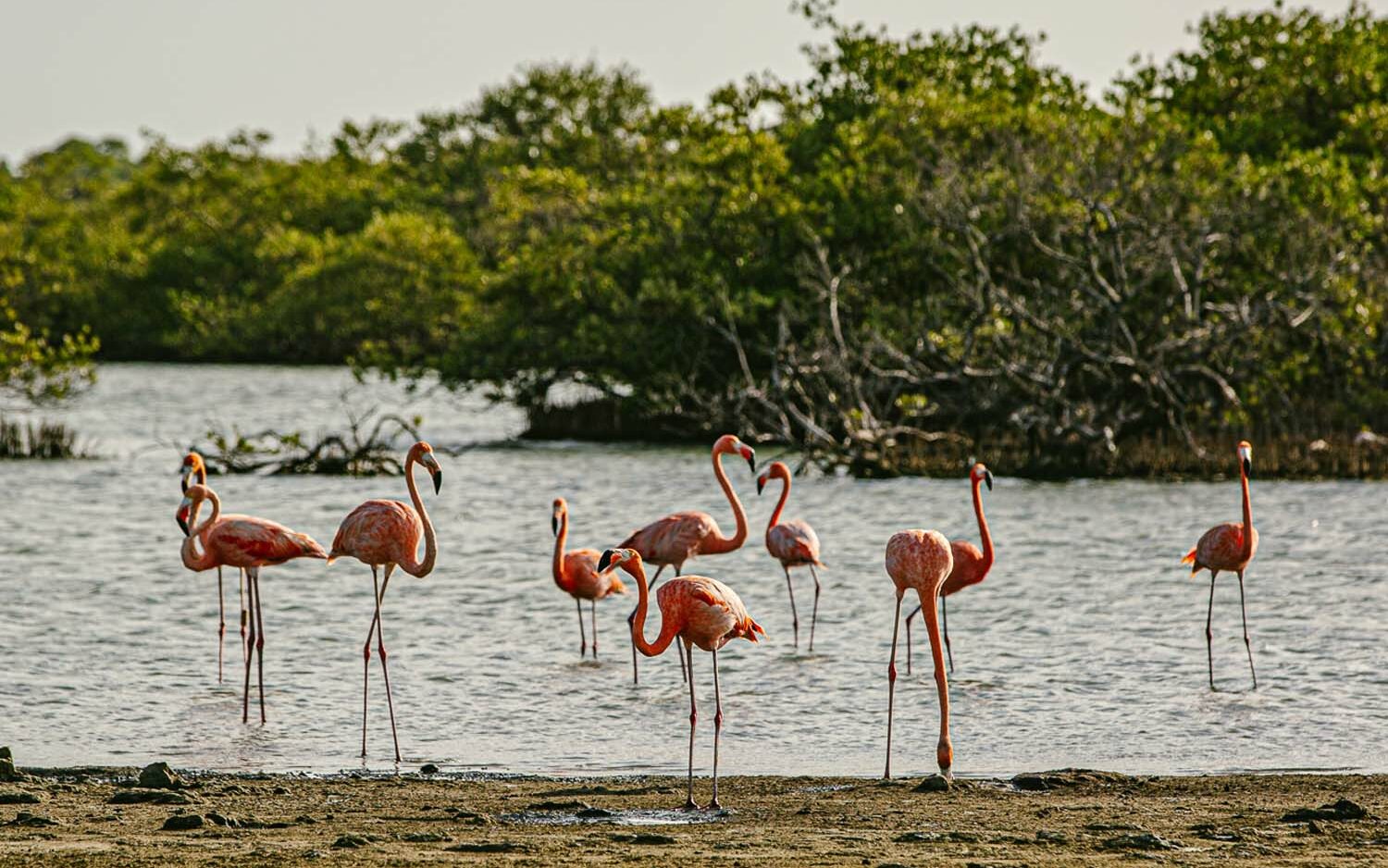
Flamingos aren’t the sole wildlife stars; Bonaire is also home to approximately 1,100 free-roaming donkeys. These gentle creatures often find themselves in unfortunate situations like traffic accidents. That’s where Marina Melis and the Donkey Sanctuary Bonaire, established in 1993, come in.
This 150-acre sanctuary provides a safe haven for approximately 750 rescued donkeys, ranging in age from just a few weeks old to 51 years. Visitors to the sanctuary even have the opportunity to adopt one of these endearing animals and contribute to their care.
These donkeys, despite their early hardships, exhibit remarkable resilience and an undeniable charm, adding to the island’s distinctive character.
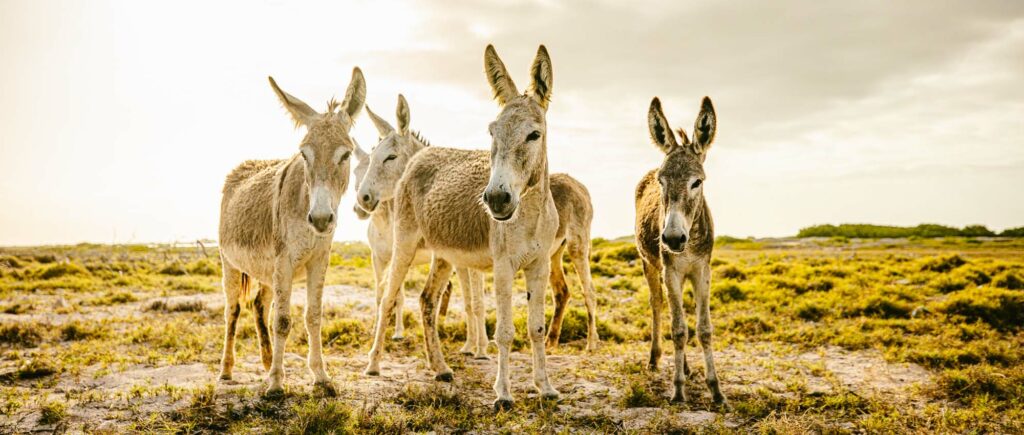
A Diver’s Paradise
One of the primary draws of Bonaire is its unparalleled diving opportunities. With more than 86 dive sites, ranging from accessible shore dives to more challenging options for experienced divers, Bonaire is often hailed as a diver’s paradise. The island’s commitment to preserving its marine environment is evident in the establishment of the Bonaire National Marine Park.
This marine park, established in 1979, encompasses the entire coast of Bonaire, Klein Bonaire (a smaller, uninhabited island just off the coast), and the surrounding waters. It’s a protected area designed to safeguard the vibrant coral reefs, seagrass beds, and diverse marine life that call this underwater world home.
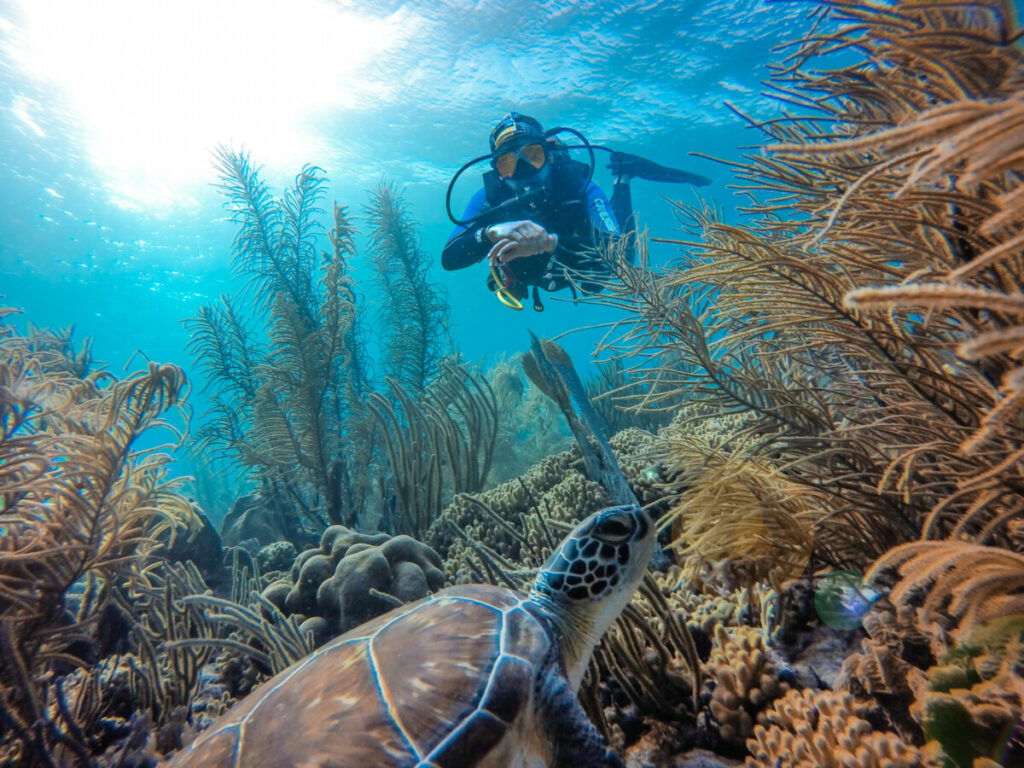
Divers here can explore intricate coral formations, encounter schools of tropical fish, and even glimpse the elusive seahorses that are native to these waters.
For those new to diving, Bonaire offers ideal conditions for learning and certification. The calm, clear waters make it an excellent place to get your scuba diving certification or simply enjoy some relaxed snorkeling.
Sustainable Tourism
Bonaire takes its role as a steward of the environment seriously. Beyond the marine park, the island has implemented various sustainability initiatives to protect its natural wonders. There’s a strong emphasis on responsible tourism, eco-friendly accommodations, and sustainable dining options.
The commitment to sustainability extends beyond words, as the island actively works to reduce single-use plastics and promote eco-conscious practices.
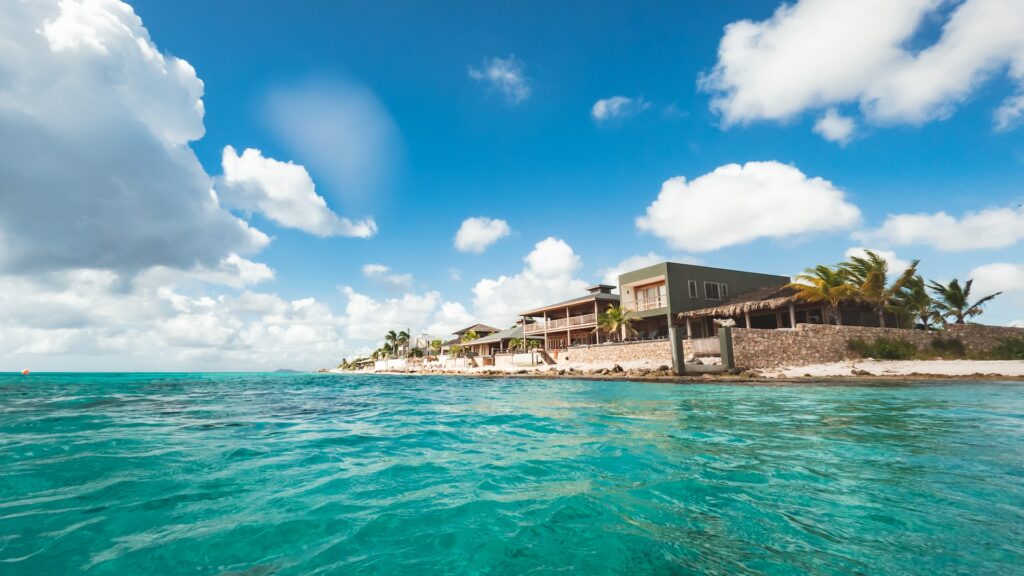
One of the best ways to explore Bonaire’s terrestrial beauty while respecting its fragile ecosystem is to embark on a hike or mountain biking adventure. The island’s rugged terrain offers diverse landscapes, from arid desert-like areas to lush cactus forests. There are trails suitable for all levels of fitness, and you’ll likely encounter some of Bonaire’s native wildlife along the way, such as iguanas and the famous wild donkeys.
Cultural Encounters
While Bonaire is renowned for its natural wonders, it also offers a unique opportunity to immerse yourself in the local culture. The island’s history is rich and diverse, with influences from African, European, and indigenous cultures. You can explore this heritage through various means, from visiting historic sites like the Slave Huts, which offer a glimpse into Bonaire’s past, to attending cultural festivals and trying local cuisine.
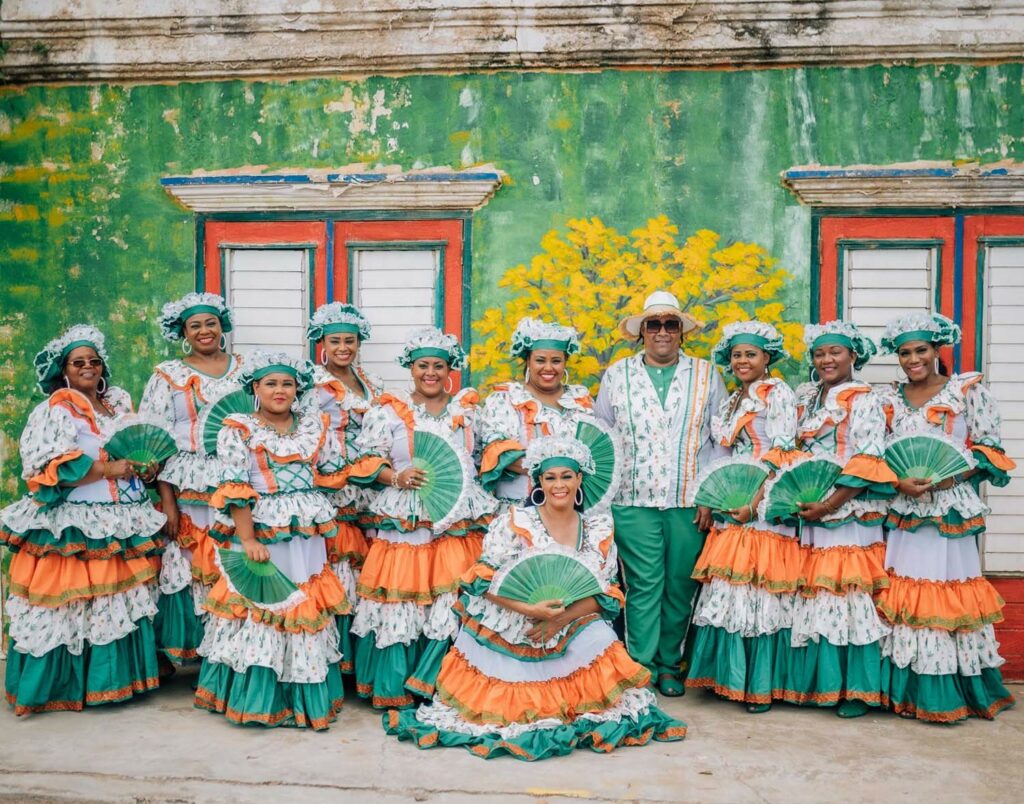
Bonaire’s food scene is a testament to the island’s diversity. You can savor a fusion of flavors from around the world while still enjoying fresh seafood and Caribbean specialties. Be sure to try the local catch-of-the-day and sample some of the unique dishes influenced by the island’s multicultural heritage.
Conclusion
Departing from Bonaire, one can’t help but experience a deep sense of gratitude for the Caribbean island paradise. Its pristine waters, abundant wildlife, and steadfast commitment to sustainability set it apart as an undeniably remarkable destination.
Bonaire transcends being merely a geographical location; it represents an immersive encounter. It is a realm where one can lose oneself in the depths of the azure Caribbean Sea, form an unfiltered bond with nature, and become absorbed in a diverse tapestry of cultures.
It extends an invitation to explore and delve further, both in the literal and metaphorical sense, urging an appreciation of a world where flamingos roam freely, donkeys find sanctuary, and the waters shimmer with a captivating blue radiance.
Therefore, for those in search of a Caribbean escape like no other, where the ocean’s allure harmonizes with the land’s charm, Bonaire awaits your enchantment. It is a paradise of flamingos and azure waters that will etch an enduring impression on your heart, just as it has on ours.
**Please note that this post may contain affiliate links. When booking through one of our links, we earn a small kickback at no extra cost to you and it’s a big help to keep the site up and running.





